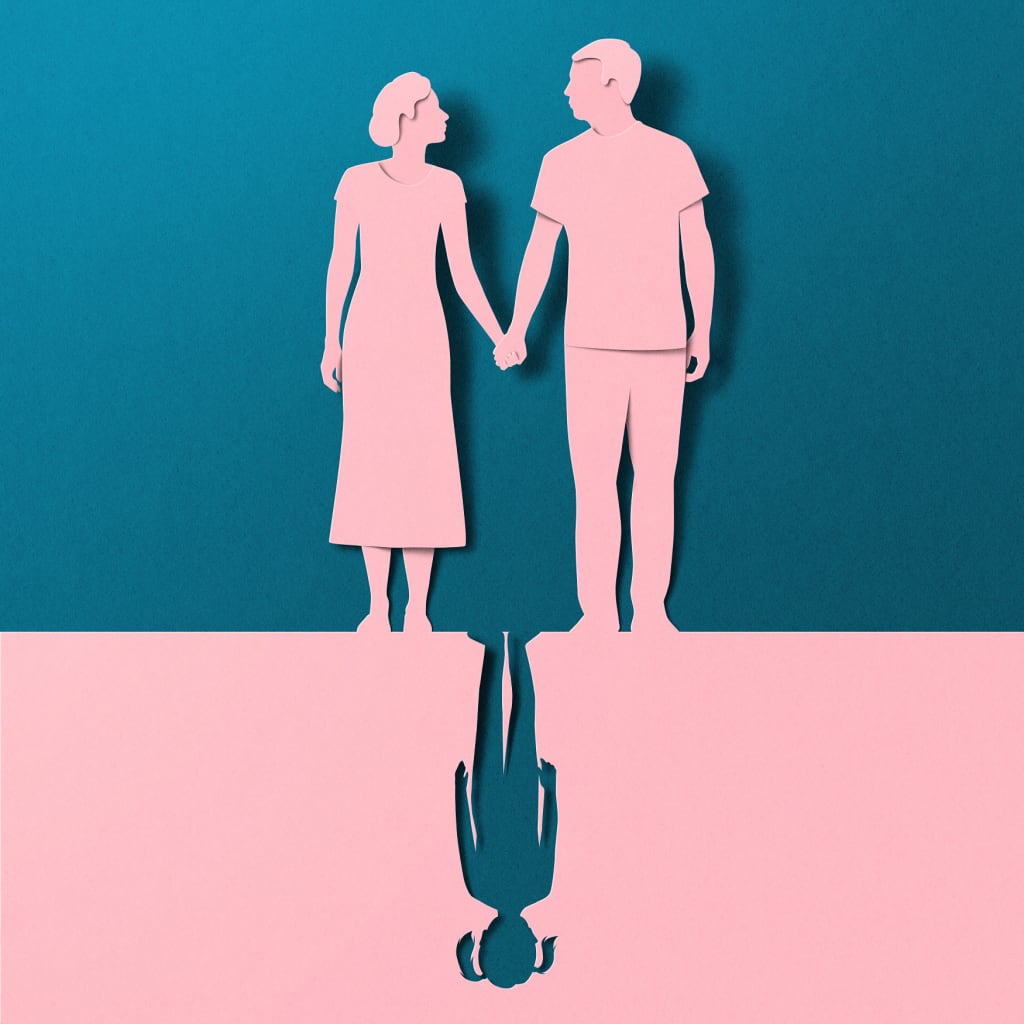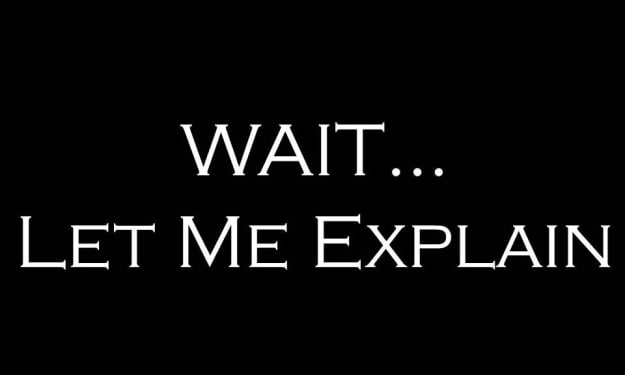
*** I wrote this in high school, about 10 years ago ***
Have you ever wondered what your life would be like had you been born into a different family? Or perhaps you've wondered what it would be like if you had two sets of parents?
Well, many adopted children wonder what their lives would or could be like had they stayed with their biological parents or had they gotten a different adoptive family. Sometimes, we even wonder what would have happened to us had we never been adopted. Some adopted children are allowed to grow up knowing both their adoptive and biological parents, but many of us are not. Having grown up being adopted, this topic is rather important to me.
Although adoption can have negative effects on all children, both adopted into the family or already a part of the family, people need to consider the effects on the children and parents before deciding on having an open or closed adoption because there are also positive effects of both open and closed adoptions on the children and both adoptive and biological parents alike.
Now, the problem with adoption is that prospective parents fail to consider the negative effects adoption can cause on the child and themselves.
When adopting, parents are usually rather excited to meet the child who could be their own in the future. But they need to think about 1) why they want to adopt, 2) the effects it can have on the child and family, 3) if they want an international or national adoption, 4) if they want a national adoption, do they want an in-state or out-state adoption, and 5) if they choose a national adoption, do they want an open or closed adoption?
So, first off, they need to know "why?". In an interview, I asked a good friend of mine what prompted her and her husband to adopt their two daughters. She replied, "We always knew we wanted to adopt because I was adopted as an infant!" (Borck). Some adoptees, when they grow up and begin their own families, decide that they want to adopt as well. In the same interview, I asked Mrs. Borck what advice she would give to someone who was thinking about adopting. "There are several things I would tell them..." she starts, "but...the main thing is....remember that this child needs unconditional love. If they are expecting a 'perfect child' they should not only never adopt but should never be parents! I've seen so many parents who adopted from China who had terrible things to say about their sweet child/children! Because they had illnesses that were not discovered, or disclosed. It made me so sad for those little girls. I can only imagine what their life has been like." (Borck).
Many biological parents request to have an open adoption, but many of these requests are not met. Parents should consider that a closed adoption is safer than an open adoption, but that there are both negative and positive consequences to both.
With open adoption, the negative effects can be that as the child grows into a pre-teen and teenager they might decide that they want to live with their biological parents or the biological parents might want to take the child/children back. However, positive effects can be that the child grows up knowing both sets of parents their entire life and can decide on their own how they feel towards their birth parents.
Some positive effects that come with closed adoption are that the child learns to depend on the adoptive parents. They learn to love the adoptive family, without the biological parents keeping/hindering them from having a normal childhood.
Some negative effects of closed adoption could be behavioral issues with the child or children. The child might become resilient, sneaky, and secretive. Many adopted children show signs of early puberty, which has been shown to be associated with problem behaviors. (Brooker).
Though there are negative and positive effects of open and closed adoption, there are also positive and negative effects of adoption in general. Many adoptees (but not all), have experienced both positive and negative effects of adoption. Some negative effects of adoption, in general, could be anger management, trust, and abandonment issues; manipulation; compulsive lying; disrespect towards authority; self-loathing; depression; self-harm; and sometimes psychological problems. Growing up, I have seen or experienced many of these.
Though there are many negative effects of adoption there are also many positive effects. Some of these can be: growing up in a good family; accepting that you are adopted; knowing you are loved and wanted; you need to acquire forgiveness towards your birth parents; you grow up on a steady foundation; and you learn to love everybody and not to judge others because you don't know their life story, just as much as they don't know yours.
Obviously, there are many positive and negative effects to open and closed adoptions and adoption in general; therefore this should not be taken lightly. This topic should be taken seriously because adoption has many serious effects on the child/children and parents involved. However, there are definite ways to fix this problem.
First, prospective parents need to think. They need to decide whether they want an international or national adoption. They need to consider the cost and expenses international adoption can bring. They also need to remember that transitions can be difficult for children and teens. If you choose a national adoption, you have to take into account where the child is currently living and where they grew up, because a sudden change of scenery for older children can be taken and reacted to badly, depending on the child. You might consider an in-state adoption. Then you need to consider the many pros and cons of open and closed adoptions
Some people think that you can just adopt a child and take them home in a course of a few minutes, but in all reality, it takes quite a while to get the papers needed, to sign the papers and be approved, and to help the child transition from one place to another and become comfortable with the idea of having a new family and being adopted. If the child knows the birth parents and loves them, even in the worst situations, it will take the child some time to trust the adoptive parents and family.
Now, adopting a baby is a bit different. If adopting an older child, you may consider an open adoption so that the child still has the connection to the birth parents, but you may also consider a closed adoption so that they might have the stability of knowing only one set of parents. However, when adopting a baby, you can have a closed adoption so that the child may grow up without the distraction of worrying about when the next time they'll get to visit their birth parents will be. Though they could have an open adoption and let them decide when they are older, enough that they may understand their adoption better, if they would like to be in contact with their biological parents or not.
With closed adoptions, the child is not allowed to have contact with the biological parents, unless the adoptive parents have said otherwise. They are, however, allowed to come up with questions, as they grow up, to ask the biological parents when they come of age and are allowed to meet with their biological parents.
When asked her opinion on whether an open or closed adoption is a better choice and why, an adoptive mother and good friend of my parents stated, "I believe it should be a closed adoption until the child turns eighteen years old, but it can be open after they turn eighteen. The maturity to understand why he or she was given up for adoption and the security of attachment to the adoptive family are both necessary to deal with the emotions involved. Forgiveness and understanding are required." (Hendrix). In an article, Jerica M. Berge says, ".....openness in adoption is becoming more common; there is little evidence of how adopted children have responded to this practice." (Berge). Mrs. Hendrix went on to say, "Different children and adults react differently. Security of the adoptive parents is important, but accepting that you have two sets of parents that may be very different is still a shock." (Hendrix).
This is important because many adoptees' attitudes and actions toward authority can be affected by the type of adoption they take a part in and what their adoptive or biological families are like. If they have an open adoption and are around the birth family often, they might start to emulate them, but if they have a closed adoption, they will emulate the adoptive parents and family in the way they act. Imagine if you were adopted; would you want to be in an open or closed adoption?
Of course, if people do not think through the pros and cons they might end up choosing the wrong choice for themselves and their families and regret it immensely. There are many adoption cases where the biological parent or parents are unable to care for the child or children properly and decide to choose a foster family to adopt the child as a baby.
If you know anyone who is adopted be careful how you approach them. Watch the choice of words you use when speaking to them about adoption, it can be a difficult subject for some.
Adoption has a major effect on everyone, even people who are not adopted or thinking of adopting in the future.
About the Creator
Cassie Grace
I'm from Kentucky. I write stuff. I use inspiration from my personal life for most of my writing. I'm currently working on writing a book, but we'll see how that turns out. For now, enjoy some of my poems and random archived writings.






Comments
There are no comments for this story
Be the first to respond and start the conversation.